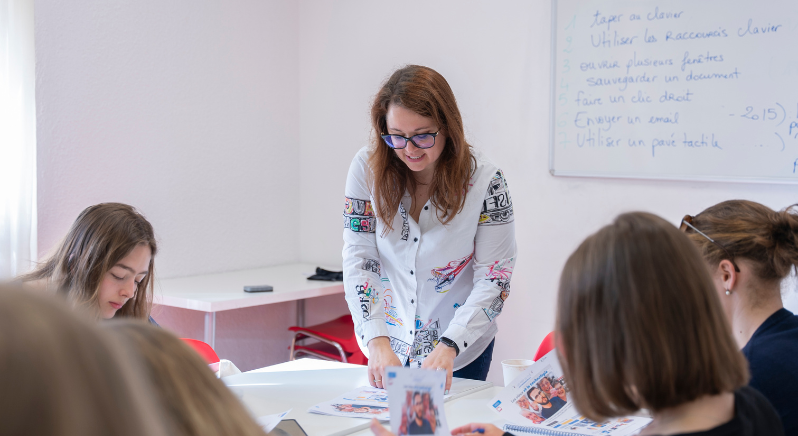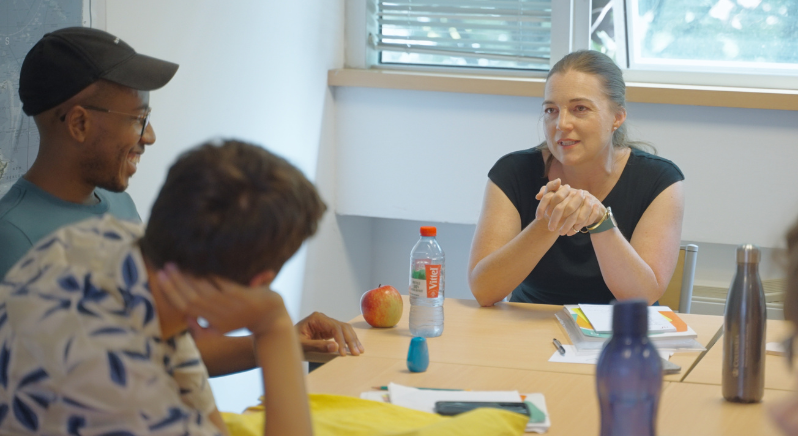Studying in France is a dream for many students worldwide, offering a rich blend of history, culture, and top-notch education. If you’re starting from scratch with no knowledge of French, don’t worry. This guide will show you how to go from a complete beginner to university student in France, breaking down the process into big steps.
From Complete Beginner to B2 Level
A B2 level in French is typically required for admission to higher education programs in France that are conducted in French. This level of proficiency ensures that students can understand lectures, participate in discussions, and complete academic assignments effectively. French universities often require proof of B2 level proficiency through standardized tests such as the DELF (Diplôme d’Études en Langue Française).
Learn more about this test here: https://stg-gogofrance-ggfstaging.kinsta.cloud/en/blog/french-exams-dilf-delf-dalf-guide/ and how long it takes to learn French here: https://stg-gogofrance-ggfstaging.kinsta.cloud/en/blog/how-long-to-learn-french/
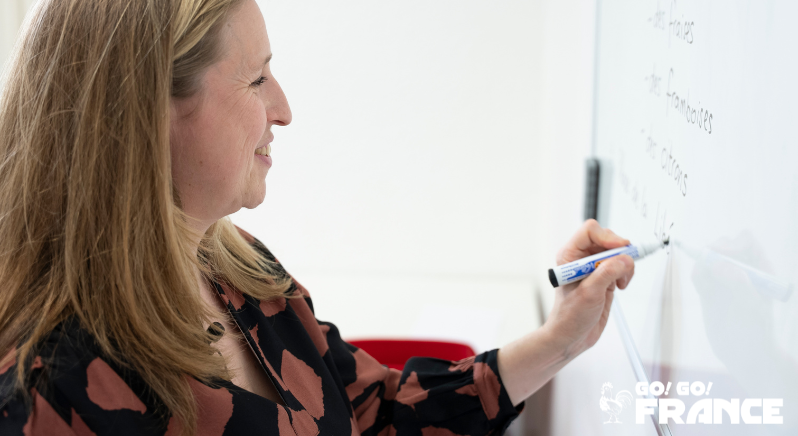
Step 1: Understanding the Basics
Your first step is to build a strong foundation in the French language. This stage involves mastering the basics of French grammar, vocabulary, and pronunciation.
Alphabet and Pronunciation
- Start by learning the French alphabet and the sounds associated with each letter.
- Pay particular attention to vowel combinations and accents, as these significantly impact pronunciation. Mispronouncing words is a common mistake beginners make and can affect their entire learning process.
Basic Grammar
- Focus on understanding the structure of French sentences, including subject-verb agreement and the placement of adjectives.
- Learn common verbs, especially être (to be) and avoir (to have), as they are frequently used and form the basis of many phrases.
Read more about basic French grammar rules here: https://stg-gogofrance-ggfstaging.kinsta.cloud/en/blog/basic-french-grammar-for-beginners/
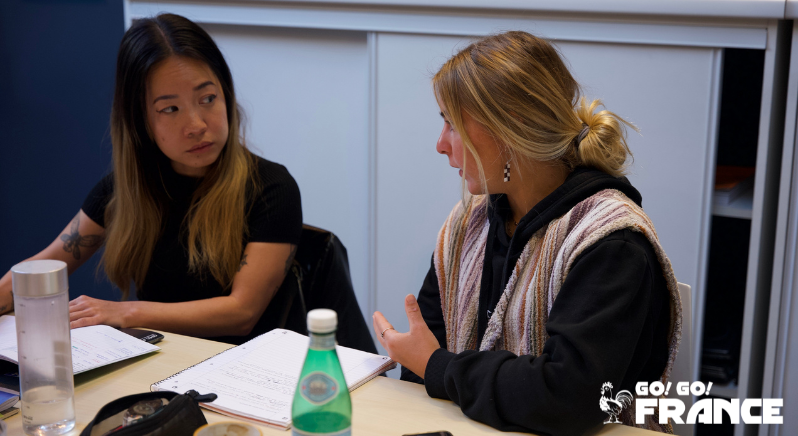
Step 2: Building & Expanding Your Vocabulary
To communicate effectively, you need a robust vocabulary. Start with everyday words and phrases that you’ll use frequently. You can find a series of articles on our blog that teach you basic vocabulary and sentences in different contexts here: https://stg-gogofrance-ggfstaging.kinsta.cloud/en/blog/category/learn-french/. Then, expand your vocabulary by learning more technical and advanced words related to the university field you aim to study.
Essential Phrases and Everyday Vocabulary
- Learn common greetings like “Bonjour” (Good morning) and “Comment ça va?” (How are you?).
- Familiarize yourself with polite expressions such as “s’il vous plaît” (please) and “merci” (thank you).
- Focus on words related to daily activities, such as “manger” (to eat), “boire” (to drink), and “parler” (to speak).
Expand Your Vocabulary
Focus on vocabulary related to your future field of study. A good way to do this is by exploring academic and professional documents. Look for official publications, articles, and books written by recognized experts in your field. You can also review research papers, attend relevant webinars or lectures, and engage with specialized forums and online communities to further enhance your vocabulary.
Reading French newspapers can significantly enhance your vocabulary. Here are some recommendations:
- Le Monde: Offers in-depth analysis and comprehensive coverage of politics, economics, science, technology, culture, and international news, making it an excellent resource for a broad audience.
- Le Figaro: Focuses on business, finance, politics, sports, culture, and lifestyle, providing valuable insights for students in business, economics, and political science.
- Les Echos: Ideal for business and economics students, it provides detailed economic and financial news.
- Mediapart: Renowned for its investigative journalism, covering politics, society, and culture in-depth, making it an essential resource for law, political science, and social science students.
Step 3: Immerse Yourself
Immersion is key to advancing your French skills. Here are some effective methods:
Find a Language Exchange Partners
Find a language exchange partner or join a language exchange community. Apps like Tandem offer platforms to connect with native French speakers who want to learn your language in return.
Listening to French Media
Regularly listen to French podcasts, watch French movies, or tune in to French radio stations. This exposure helps you become familiar with the rhythm, intonation, and pace of spoken French.

Step 4: Preparing for University Admission
Once you have a solid grasp of French, start preparing for university admission.
Finding the Right Program
Use resources like Campus France to research universities and programs that align with your academic interests.
Checking Language Requirements
Most universities require proof of French proficiency, typically through exams like DELF or DALF. As explained above, a B2 level is usually the minimum requirement, but depending on the field and the selectivity of the university or school you aim for, you might need a C1 level.
To meet these requirements, consider enrolling in preparatory courses offered by French language schools in France. The courses are specifically tailored to help students achieve the B2 or C1 proficiency levels required for university admission. Go! Go! France can help you choose the right French language school and support you with the application process. Contact us to get your life and study in France journey started.
Application Process
Each university has its own application deadline, and deadlines vary depending on the university departments and programs.
First, ensure you have enough time to complete all the paperwork ahead of the deadline. Some universities might request documents that take time to obtain, such as a birth certificate, which often needs to be issued by your birthplace ward office and sent by post.
Ensure you have your academic transcripts and previous diplomas ready. Include your proof of French proficiency (DELF B2 or DALF C1) and any other language certificates, such as TOEIC for English proficiency if required.
Some universities, especially selective ones, may ask for a cover letter and a resume, so prepare yours in advance. If you don’t know how to prepare your cover letter and resume in French, check our articles here:
– https://stg-gogofrance-ggfstaging.kinsta.cloud/en/blog/how-to-write-a-french-resume/
– https://stg-gogofrance-ggfstaging.kinsta.cloud/en/blog/how-to-write-a-french-cover-letter/
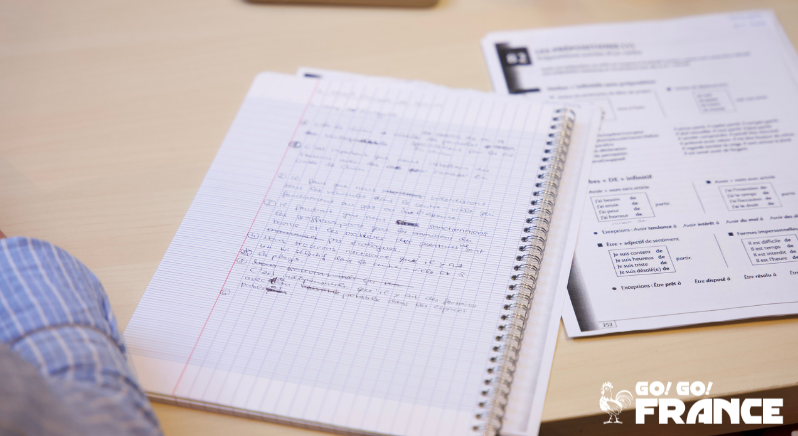
Step 5: Thriving at a French University
Congratulations! You’ve made it to your first classes, but now you need to adjust to university life in France and engage in campus activities. Social integration is as important as attending classes and studying for your overall well-being. Engaging with peers and participating in campus activities fosters a supportive network, helping to manage stress and loneliness, especially for international students. It also develops essential interpersonal skills like communication and teamwork. Moreover, building connections can lead to valuable career opportunities through networking.
